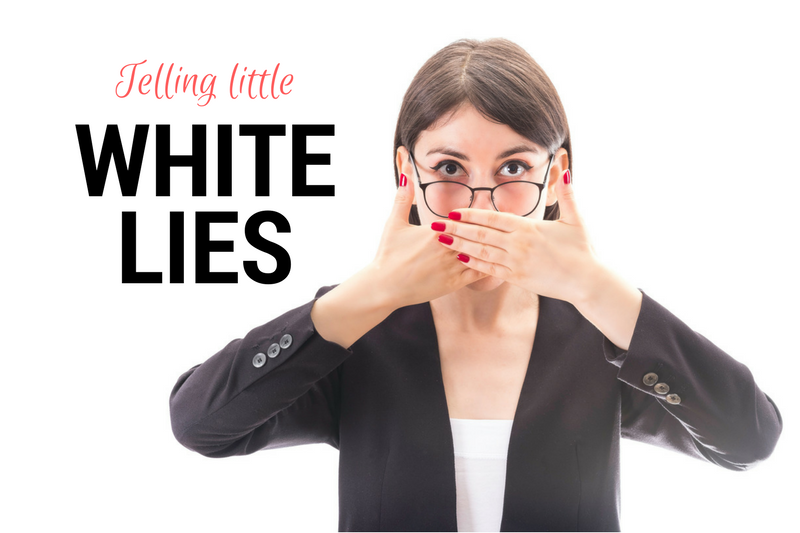When it comes to telling lies, white ones matter, too

People say the truth sometimes hurts, but does that make telling little white lies OK? While you think you are protecting yourself and the feelings of others, experts say even the tiniest of lies can be troubling.
From the “No, you don’t look like you’ve gained weight” commentary all the way to “The fish was this big,” no lies are good ones when it comes to our interactions with friends and loved ones.
What’s a little lie between friends?
You don’t want to hurt your friend’s feelings, but you have other plans when she invites you out so you tell a little lie. No big deal, right? Experts say we sometimes tell white lies to reduce our own feelings of discomfort, or because we think it will help our interactions with people go more positively. The downside is, this only works for the short term.
“These lies can cause you to feel guilty and possibly even feel shame due to not being genuine,” says Serina A. Neumann, PhD, Professor of EVMS Psychiatry and Behavioral Sciences. “The subsequent feelings can weaken you in your relationships with others, and possibly cause you to pull away from them.”
I didn’t lie. I just left out a small detail.
Don’t fool yourself. Omitting parts of the truth is also considered lying. Plain and simple, it’s distorting reality. People often think it is better than directly saying something that is not true, Dr. Neumann says, but this type of lying is still not genuine or authentic.
This doesn’t mean you have to say every negative thought that comes to you, she says, but it is OK — even best — to be honest when someone asks for your opinion. They value what you have to say and you should give them the same respect.
Will the real you please stand up?
Exaggeration can help you to maintain a certain image, so sometimes people use little white lies to help them look better and/or feel better about themselves. In most cases, these types of white lies are told because someone wants to be liked. But if you are lying, do they like the real you?
“Remember that people can only get close to you and like you if you are being genuine or authentic,” Dr. Neumann says. “Otherwise, they are in a relationship with ‘someone’ else — a façade. It is not a true relationship.”
Remember, good relationships are based on authenticity and genuineness. If you want good relationships with others, she says, it is best in the long run to be honest.
You can’t lie to yourself. Can you?
Here’s the thing: Lying goes both ways. Sometimes, we lie to manage other’s responses, so we get to hear what we want to hear. If you are telling your coworker a story about how mean your boss was to you this morning but you leave out the part about your being two hours late, he may tell you it's wrong you got yelled at for nothing. Sure, that may be what you want to hear, but is it the truth?
By lying this way, Dr. Neumann says, we are depriving ourselves of hearing authentic opinions or advice about a situation. In the end, the golden rule is golden for a reason.
“Before lying to someone in your social group, stop to think through how you can most respect the other person’s feelings, and the relationship you have with them,” she says. “I think you’ll find honesty is the best policy and that it is worth it in the end.”